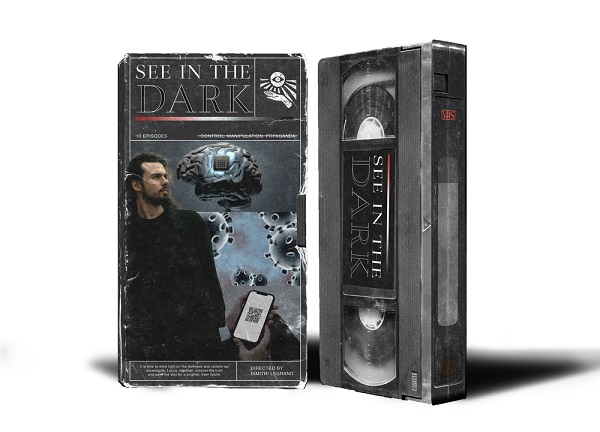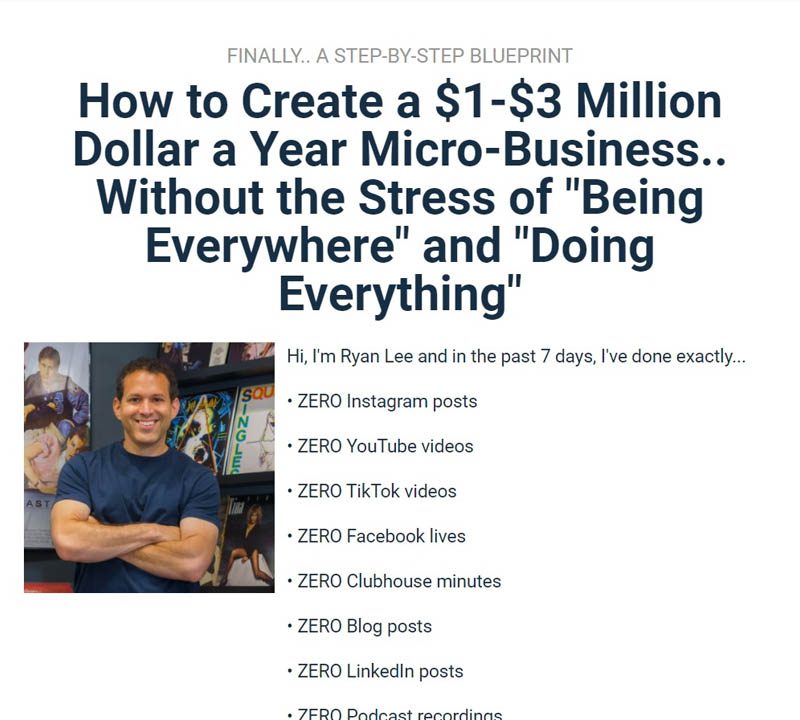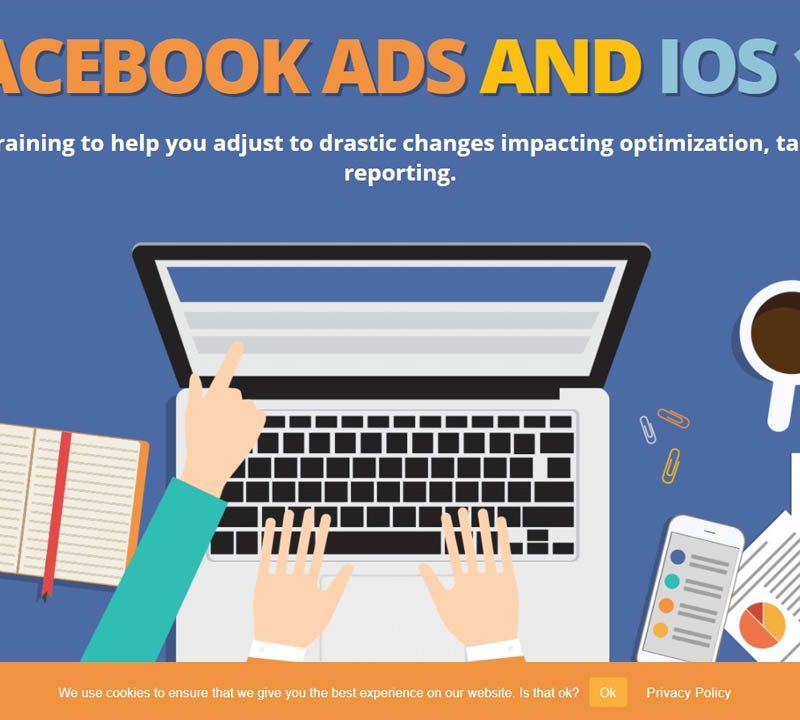See In The Dark – Dimitri LeGrand
$32.00
Discount 20% if your total cart over $150
- Satisfaction Guaranteed
- Fast and forever download link
- Secure Payments
- Reupload FREE
Description
Proof of the course:

This article delves into the thought-provoking world of Dimitri Legrand, exploring his project, Reality Revolt, and the themes presented in the See in the Dark series, examining claims of occult manipulation, simulated realities, and the alleged subversion of truth in modern society.
Dimitri Legrand

Dimitri Legrand is the figure behind “Reality Revolt”, a project comprised of 10 episodes which aims to expose what he identifies as manipulation and control exerted on humanity by occult elites and their agenda. He presents a narrative that challenges conventional understandings of reality, suggesting hidden forces are at play shaping global events and societal trends.
The Architect of Reality Revolt
Dimitri Legrand has positioned himself as a voice for unveiling hidden truths, a counter-narrative to mainstream media and established narratives about global events. He’s not just a content creator; he’s built a brand around the idea of awakening individuals to what he perceives as a manufactured reality. His persona, often presented with a sense of urgency and conviction, is carefully crafted to resonate with an audience already questioning the status quo. He presents himself as someone who has “seen the light,” capable of guiding others out of the perceived darkness. However, it’s important to recognize the responsibility that comes with presenting such strong claims.
The appeal of figures like him lies in their ability to offer explanations for complex and often unsettling events. In a world where information overload is rampant and trust in institutions is waning, the promise of simple answers can be incredibly alluring. He offers a framework for understanding the world that connects seemingly disparate events under a single, overarching conspiracy.
This can provide a sense of control and agency to those who feel overwhelmed or powerless. He aims to give people an understanding of how they fit into a larger narrative, even if that narrative involves secret societies and hidden agendas.
He isn’t just presenting information; he’s selling a philosophy, a way of life. He implies that by “waking up” to the alleged manipulations, viewers can reclaim their freedom and destiny. This sense of empowerment, however, can also be problematic. It can lead to a form of self-isolation, where individuals become distrustful of anyone who doesn’t share their worldview, creating echo chambers of belief that reinforce existing biases.
The Power of Alternative Narratives
Whether or not one agrees with the specific claims made by Dimitri Legrand, the rise of alternative narratives like those presented in Reality Revolt speaks to a deeper cultural trend. There’s a growing skepticism towards established institutions, media outlets, and political figures. This skepticism isn’t necessarily unfounded; many people feel that their concerns are not being adequately addressed by those in power.
The internet has democratized the information landscape, allowing individuals to create and disseminate their own versions of reality. While this has its benefits, it also comes with the risk of misinformation and the amplification of extremist viewpoints. The algorithms that power social media platforms can create filter bubbles, reinforcing existing beliefs and making it difficult to engage with opposing perspectives.
Within this kind of environment, figures like him thrive. They tap into the anxieties and frustrations of a segment of the population that feels disenfranchised and unheard. They offer a sense of community and belonging to those who feel alienated from mainstream society. The challenge lies is sifting fact from fiction, engaging in critical thinking, and avoiding the trap of confirmation bias.
Impact and Influence
The success of Dimitri Legrand and projects like Reality Revolt highlights the power of storytelling and the human need for meaning. Even if the stories being told are based on speculation and conjecture, they can have a profound impact on individuals and society as a whole. It’s crucial to understand the psychological factors that contribute to the acceptance of conspiracy theories and to develop the skills necessary to critically evaluate information.
The key ingredient lies in media literacy. It means understanding how information is created, disseminated, and consumed. It involves questioning sources, verifying facts, and being aware of one’s own biases. Critical thinkers are not easily swayed by sensational headlines or emotionally charged rhetoric; they are able to analyze information objectively and make informed decisions.
The impact of Dimitri Legrand’s work isn’t just about whether viewers believe his specific claims. It’s about the broader questions he raises about the nature of reality, the role of power, and the importance of critical thinking. The influence of individuals like him forces us to confront our own biases, to question our assumptions, and to engage in a more informed and nuanced discussion about the issues facing our world. Ultimately, the goal should equip ourselves with the tools to navigate the complex information landscape and to form our own well-reasoned opinions.
Reality Revolt
The series “Reality Revolt” by Dimitri Legrand aims to peel back layers of perceived deception, arguing that reality is not what it seems. The project alleges that global events are staged, driven by occult elites with the goal of mind control and enslavement. It covers a wide range of themes, from the simulation hypothesis to the subversion of traditional values, encouraging viewers to “wake up” to the “truth”.
Simulated Reality and Mass Psychosis
One of the central themes of Reality Revolt is the assertion that we live in a simulated reality. This idea, borrowed from science fiction and philosophical thought experiments, posits that our perceived world is not the “real” world, but rather a computer-generated illusion. This concept serves multiple purposes within the narrative of Reality Revolt.
First, it casts doubt on the stability and reliability of our everyday experiences. If reality is a simulation, then anything is possible. Secondly, it introduces the idea of a “programmer” or “controller” who is manipulating the simulation for their own purposes.
Furthermore, Dimitri posits that political figures and world events are mere actors and staged performances designed to maintain mass psychosis. This accusation suggests that the masses are manipulated into remaining in a state of delusion by orchestrating these events. It implies that individuals are unknowingly participating in a game with hidden rules in which they are merely pawns.
It is a concept that can be intellectually stimulating as well as unsettling. It encourages a questioning of what we perceive as truth and the nature of consciousness. However, it can also be a slippery slope. The leap from questioning reality to dismissing all evidence that contradicts a pre-determined belief is a dangerous one.
Occult Elites and The Great Reset
Reality Revolt identifies “occult elites” as the true puppeteers behind global events. These elites purportedly use programs like “sustainable development” and “The Great Reset” to conceal their intentions of controlling humanity, turning them into cyborgs without free will. This framing draws on long-standing anxieties about secretive power structures and hidden agendas. It taps into the fear that ordinary individuals are being manipulated by shadowy figures operating behind the scenes.
The concept of a “Great Reset” has become a lightning rod for conspiracy theories, particularly in the wake of the COVID-19 pandemic. It’s often portrayed as a sinister plot by global elites to restructure society in their own favor, stripping individuals of their freedoms and consolidating power in the hands of a select few.
Regardless of whether one believes in the existence of a secret cabal, it is undeniable that power structures and inequalities exist in the world. It’s important to analyze and understand these dynamics, but doing so requires critical thinking and a willingness to engage with evidence-based arguments. The danger lies when focusing on scapegoats and simplistic explanations that ignore the complexities of social and economic systems.
Technological Manipulation and Enslavement
One of the more unnerving allegations in Reality Revolt is that technologies like tracking apps, smartwatches, 5G, and 6G are portrayed as tools of control, surveillance, and potentially turning humans into synthetic beings. Nanotechnologies, including graphene oxide introduced through vaccines and other products, are characterized as programmable substances that turn people into human antennas.
This aspect of Reality Revolt taps into the fear of technological overreach and the potential for technology to be used for nefarious purposes, to subvert our autonomy and even alter our physical and mental states. The claim that vaccines contain graphene oxide, a substance that allegedly turns people into “human antennas,” is a particularly alarming one.
This kind of narrative speaks to legitimate concerns about the privacy implications of surveillance technologies and the need for greater transparency and accountability in the development and deployment of new technologies. However, it’s essential to approach these concerns with a balanced and informed perspective. Technology is a tool, and like any tool, it can be used for good or for ill. It’s up to us, as a society, to ensure that technology is used in a way that benefits humanity and protects our fundamental rights and freedoms.
See in the Dark Series
The “See in the Dark” series, presumably an extension of the Reality Revolt project, delves deeper into specific areas of alleged manipulation and control. The series alleges that climate change is a masquerade, that global events are staged mega-rituals, and that celebrities are manipulated pawns in a larger game. The aim to to alert individuals to the “dark” aspects of modern society.
Climate Change as a Masquerade
According to Reality Revolt, climate change is framed as a manipulation tactic to instill fear and guilt in humanity through catastrophic narratives propagated by the media. Public figures like DiCaprio and Greta Thunberg are accused of amplifying this collective guilt. This perspective is a common trope in conspiracy theories, where established scientific consensus is dismissed as a hoax or a fabrication.
While it’s true that the media can sometimes sensationalize or oversimplify complex issues, the overwhelming scientific consensus on climate change is undeniable. Dismissing climate change as a “masquerade” not only ignores the evidence but also undermines efforts to address this critical global challenge.
The climate change denial narrative often tries to discredit climate scientists and environmental activists. Public figures like DiCaprio and Thunberg, who advocate for climate action, are accused of having ulterior motives or being part of a larger agenda. These accusations are often based on personal attacks and unsubstantiated claims, rather than on evidence or logical reasoning.
Having a healthy skepticism towards media narratives and political motivations is important, but it’s equally important to distinguish between legitimate scrutiny and outright denial of scientific evidence.
Mega-Rituals and Symbolic Manipulation
The series presents global events like concerts, the Olympic Games, and the Oscars, are presented as mega-rituals using Masonic symbols to fragment collective perception and shape reality. Celebrities are depicted as manipulated pawns, often mind-controlled to follow pre-set scripts. This perspective draws on the idea that certain symbols and rituals have hidden meanings and the power to influence human consciousness.
It is easy to dismiss these claims as paranoid or fanciful. However, the appeal of these ideas lies in their ability to offer a sense of meaning and order in a seemingly chaotic world. By interpreting global events as part of a larger ritualistic plan, individuals can feel that they have gained access to a hidden truth.
The danger lies in the potential for this kind of thinking to lead to irrational behavior and the rejection of evidence-based reasoning. Once someone becomes convinced that they have uncovered a hidden truth, they may be less likely to question their beliefs or to consider alternative perspectives. Celebrities are often targeted who are seen as mouthpieces for a hidden agenda or are complicit in a larger conspiracy.
The key is to approach claims of symbolic manipulation with a healthy dose of skepticism and to rely on evidence and critical thinking. Analyzing power structures, cultural trends, and media narratives is necessary, but it’s equally important to avoid falling into the trap of seeing hidden meanings and agendas everywhere.
Subversion of Family Values and Gender Identity Confusion
Reality Revolt delves into themes of mind control, gender identity, and family values, claiming that popular culture integrates elements of future events to psychologically prepare the public and desensitize them through repetition, utilizing films, music videos, and video games. Hidden subliminal messages are said to be used to reinforce specific narratives and create passive acceptance of future events.
Feminism, as portrayed in films like Barbie, is alleged to contribute to the destruction of the family by promoting the idea that having children is not valued and that masculinity is toxic. It further alleges that LGBTQ+ propaganda is presented as a means to create gender identity confusion, with celebrities allegedly playing a role in acclimating society to transgender issues.
This series of assertions is a constellation of already existing cultural anxieties. The concern that popular culture is increasingly normalizing what were once viewed as fringe ideas resonates with a segment of the population. The concern over media messages and their impact on the youth is ever present with the expansion of media.
The claim that LGBTQ+ propaganda is a means of gender identity confusion is a contentious topic. Accusations of celebrity transvestigation and ties to satanic religion are aimed to cause an emotional reaction, not factual assessment.
Conclusion
Navigating the landscape of information, especially when dealing with claims of hidden agendas and manipulated realities, requires a critical and discerning mind. While Dimitri Legrand’s “Reality Revolt” and the “See in the Dark” series raise important questions about power structures, technological advancements, and the nature of truth, it’s crucial to approach these claims with a healthy dose of skepticism and a commitment to evidence-based reasoning. The ability to distinguish between legitimate scrutiny and unsubstantiated claims is essential for navigating the complexities of the modern world and forming our own well-reasoned opinions.
Sales Page:_https://www.dimitrilegrand.com/series-eng





